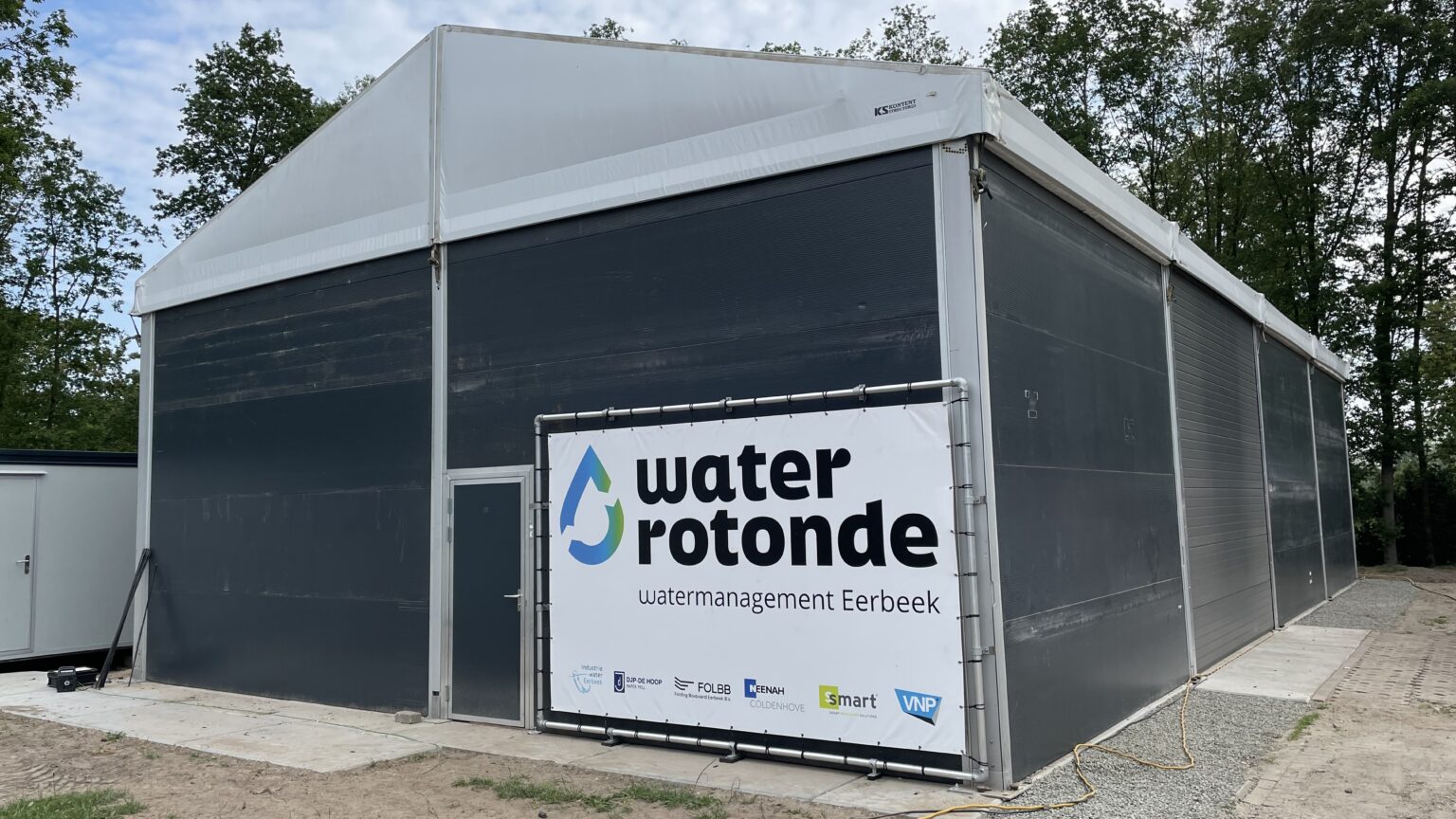After more than a year of technical and practical preparations, the Eerbeek Water Roundabout (The Netherlands) pilot was officially launched in September. On the premises of Industriewater Eerbeek (IWE), a test installation of a closed, circular water management system will run until the end of 2023. This pilot will investigate whether a ‘full scale’ installation is technically and financially feasible. The aim is to connect the first paper mill to the circular system by mid-2026. The Water roundabout Eerbeek is committed to making the paper industry more sustainable and almost 100% circular reuse of industrial wastewater. This will ensure paper and cardboard mills around Eerbeek and Loenen continue to have sufficient water for their production processes in the future, while drastically reducing their water footprint.
The project was initiated and developed by Folding Boxboard Eerbeek together with the two other paper mills from Eerbeek that also own IWE; a fourth paper mill from nearby Loenen has committed to the test as a party. Together, the four paper mills have a highly water-intensive production process and, in making water consumption within Waterrotonde Eerbeek circular, could together save 3.6 million m3 of groundwater annually. This is equivalent to the consumption of 22,000 households. Moreover, the technology could be the answer to the impending shortage of clean drinking water due to climate change and population and economic growth.
Careful handling of groundwater: our responsibility
This summer, several heat records fell worldwide: including Western Europe. Despite the relatively wet spring of 2023, dehydration is a growing social problem. The sandy soils of the Veluwe (Eerbeek borders the Veluwe nature reserve) also suffer from longer periods of low precipitation. “The paper industry is very aware of the impact that current groundwater consumption has. Therefore, from our social responsibility, we now want to do everything possible to reduce groundwater extraction as much as possible. With this in mind, the Eerbeek Water Roundabout was born in 2022,” says William Suijkerbuijk, project director and the brains behind the Eerbeek Water Roundabout.
The Water Roundabout can contribute to a sustainable ecosystem with an eye for people and the environment. Moreover, with the project we want to anticipate upcoming regulations regarding discharges on surface water. In Water roundabout Eerbeek, all these ambitions come together.”
Ultimate goal: zero liquid discharge
Industriewater Eerbeek (IWE) has been treating excess process water from paper mills Folding Boxboard Eerbeek, Stora Enso De Hoop Mill and Neenah Coldenhove since its establishment in 1960. Residual streams such as lime, sludge and biogas are reused by IWE, and the organisation also aims to further expand circularity in terms of energy and auxiliary material use in the long term. The ultimate goal is zero liquid discharge. This means almost 100% reuse of wastewater from all four plants and full utilisation of available raw materials,” Suijkerbuijk said.
Future Eerbeek water roundabout
Until the end of 2023, various, innovative technologies for water treatment will be extensively (scientifically) tested in the pilot Water roundabout Eerbeek. Important precondition is the scalability of the project; various scenarios are being considered. Based on the various tests and results, as well as the financial feasibility, a choice of technology to be implemented will be made in early 2024. Further process automation and the construction of the plant itself will follow in 2025, and then the various plants will be connected step by step. The aim is to be the first to connect Folding Boxboard Eerbeek to this Water Roundabout in 2026.

